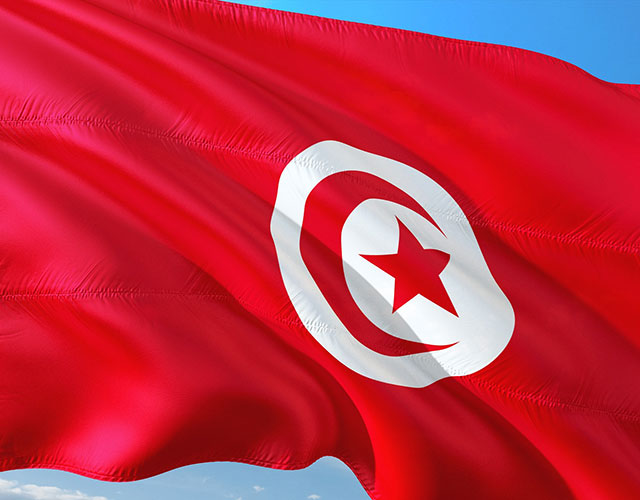Tunis – Tunisia’s top diplomat sought to “reassure” sub-Saharan African migrants on Monday, in an interview with AFP days after comments by President Kais Saied drew accusations of racism.
Last week, Saied called for “urgent measures” against “hordes” of sub-Saharan migrants, whom he accused, without evidence, of causing a wave of crime and representing a plot to change the country’s demographic make-up.
Rights groups have since reported a spike in vigilante violence including stabbings of black Africans, while migrants say they have been thrown out of their dwellings en masse and handed over to “mob justice”.
The African Union voiced its “deep shock and concern” at his comments, urging member states to “refrain from racialised hate speech that could bring people to harm”.
In an interview with AFP on Monday, Foreign Minister Nabil Ammar said Saied’s comments had been tendentiously interpreted.
“Several days have now passed and now we need to keep a cool head. It’s time to reassure (Africans). Messages of reassurance have already been transmitted through official channels,” he said.
“There’s no question of apologising, we didn’t attack anyone.”
According to figures from the Tunisian Forum for Economic and Social Rights (FTDES), drawn from official sources and confirmed by Ammar, the North African country of 12 million inhabitants hosts around 21 000 sub-Saharan African migrants who lack full documentation.
Bureaucratic obstacles
That figure, around 0.18 percent of the population, includes foreign students at the country’s universities who often complain they are unable to obtain the paperwork they need because of bureaucratic obstacles.
Ammar insisted that “there’s no problem with legal migrants. In fact, we’d like to see more. (However), illegal migrants should return home, with full respect for their rights and dignity.”
He also rejected any link between Saied’s comments and recent violence against migrants.
“We shouldn’t confuse individual acts with the acts of the authorities. The authorities are taking every measure to protect all migrants in Tunisia, whether legal or illegal,” he said.
Ammar, who took office three weeks ago, said Tunisian authorities were “within their rights to raise the alarm when there is an increasing flow of illegal immigrants, with all the consequences that this entails”.
Anger against Saied has partly focused on his claim that a “criminal plot” was under way to change Tunisia’s demography, which critics say echoes conspiracy theories promoted by the French far right.
Hours after his comments, far-right former French presidential candidate Eric Zemmour tweeted in support of Saied, saying countries in North Africa were “themselves starting to sound the alarm” over the “great replacement”.
Ammar said the comment was “just one element” of Saied’s address, asking: “Why did the commentators seize on this and make it the central element?”
Clandestine migrants
He also briefly cited widely shared videos of sub-Saharan migrants in Tunisia claiming the country belonged to Africans, but added that he did not want to “feed this controversy”.
Tunisia sits on Africa’s northern coast less than 150 kilometres (90 miles) from Italy, and has served as a launchpad for thousands of clandestine migrants — including Tunisians themselves — fleeing war and poverty to seek better lives in Europe.
European governments, particularly in Rome, have pressured the country to stem the flow, and the Tunisian coastguard regularly intercepts boats carrying migrants in its territorial waters, part of the world’s deadliest migration route.
Rights groups say Tunisia has become a key actor in European-backed surveillance of the central Mediterranean.
ALSO READ | Tunisia climate of fear pushes sub-Saharan migrants to the exit
“We’re sandwiched between the north and the south, and when we say there is a problem people call us racist,” Ammar said. “You see how unfair it is.”
He also denied accusations by rights groups that Saied’s comments were intended to distract attention from an economic crisis that has caused shortages of basic goods, or a crackdown against the president’s political rivals, with a dozen prominent critics arrested this month.
“These are their interpretations, not the reality,” Ammar said.
“When the Tunisian authorities sound the alarm on a situation risks becoming problematic, why does it have to be linked to other issues?”
Follow African Insider on Facebook, Twitter and Instagram
Source: AFP
Picture: Pixabay
For more African news, visit Africaninsider.com


